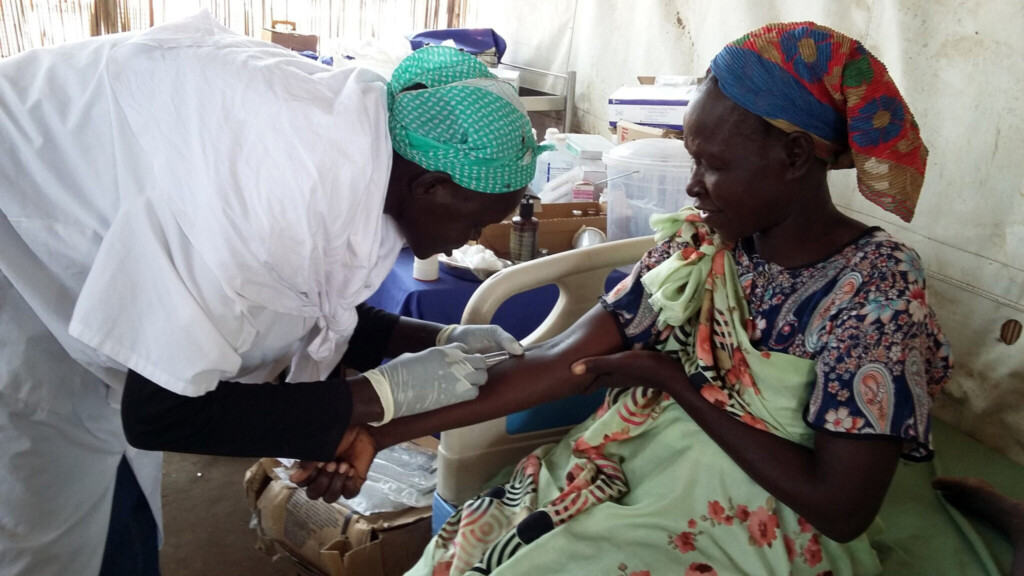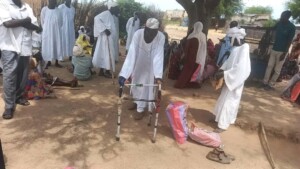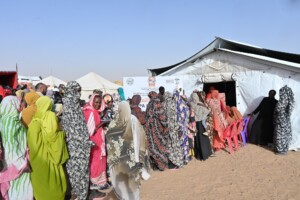Sudanese patients ‘without treatment’ in Blue Nile amidst shortages

A patient receives treatment in Sudan (File Photo: MSF)
In Sudan’s Blue Nile region, patients suffering from chronic illnesses are struggling to access life-saving treatment, amidst a total shortage of medicines and specialists due to the ongoing war between the Sudan Armed Forces (SAF) and the paramilitary Rapid Support Forces (RSF).
Mortada Yousef, head of the Blue Nile region* Dramatists Syndicate, told Radio Dabanga that there is a complete shortage of “oncologists, medical specialists, and medicines” for chronic illnesses in the region. “Patients are forced to go to El Gedaref, Port Sudan, and other cities for treatment.”
He also spoke of the conditions facing displaced people in Ed Damazin, the capital of Blue Nile: “There are only three shelters available in the entire region. With temperatures dropping, there is a dire need for blankets, food, and medicine in the centres.”
On January 10, Emergency Room member Esra El Kheir called upon humanitarian organisations to urgently provide relief for families displaced to Ed Damazin.
Yesterday, Radio Dabanga reported that more than 3.5 million people in areas controlled by the Sudan People’s Liberation Movement-North (SPLM-N El Hilu) in the Nuba Mountains and Blue Nile region are facing extremely dire humanitarian conditions.
* On August 8, 2022, the governor of Blue Nile state issued several decrees, based on the October 2020 Juba Peace Agreement (JPA), by which the state became a ‘region’ and its seven localities (Ed Damazin, El Roseires, Wad El Mahi, Bau, Geisan, El Tadamon, and El Kurmuk) became ‘governorates’. According to International IDEA, the JPA protocol concerning Blue Nile and [South and West] Kordofan grants autonomy to these areas but does not stipulate they should become a region.











 and then
and then